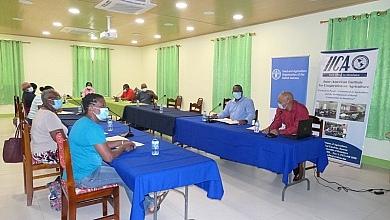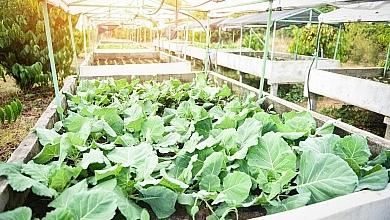Amidst the Crisis and Fear, a Passport to the Future

In many countries, it has been the only sector that has continued to operate without interruption during the pandemic. Despite the decline in global trade and the difficulties imposed by the virus, it has been able to increase its exports and to reaffirm its strategic role.
We are celebrating World Agriculture Day during one of the worst crises in memory. The pandemic has created and will continue to create more poverty, inequality and social despair, and yet it has not halted production or the supply of food.
During these past months, many Latin American and Caribbean nations have produced entire harvests that will feed the world and will keep the wheels churning in an activity that is vital for life. It is clear that this is not the time for complacency, but a time when we must insist that this sector that offers structural solutions for the most serious problems of human civilization should be accorded the greatest priority in public agendas.
Poverty, inequality, unemployment, food and nutritional insecurity, family disintegration, mass migration and environmental challenges: the resolution or mitigation of all these issues may have a common denominator. This common denominator is agriculture, which is an intrinsic aspect of solutions to a disturbing reality.
By its very nature, agriculture is transformational and, along with education, is the most efficient option to tackle structural poverty in rural areas. Moreover, coupled with production processes or territorial development plans, reflected in modern technical cooperation, it may also be seen as an effective social policy.
It is also an essential engine for development, due to its significant interaction with science and its intensive use of technology. Furthermore, it enhances the position of Latin American nations in the global market, based on the region’s unparalleled wealth of natural resources, enriched by production and entrepreneurial capacities that we must perfect, by incorporating social, environmental and technological dimensions.
This dramatic period is also a fitting moment to once again look to rural territories as areas of opportunity and social progress, which will call for appropriate institutional structures, a new generation of public policies for family farming and the facilitation of access to digital technologies, to allow all our farmers to increase their output and boost their income.
With its production linkages, agriculture is the activity that can most rapidly guarantee improved living conditions and fuel the expansion of services related to education, justice, telecommunications and infrastructure for rural inhabitants, in order to resolve the problems that lead to rural flight and migration to urban centers.
These objectives are key aspects of the new technical cooperation agenda, which will also include the facilitation of producers’ access to commercial chains; the promotion of the bioeconomy; and the smart industrialization of our societies, based on the use of biological resources, which together have the potential to convert rural territories into a vast green factory, producing food, bioenergy, biomaterial and probiotics.
Let us celebrate and recognize the value of agriculture.
The modern concept of agriculture recognizes it as an activity that can create opportunities more than any other. It is, therefore, as it was thousands of years ago, our surest passport to a better future.
This article is copyright © 2020 DOM767








